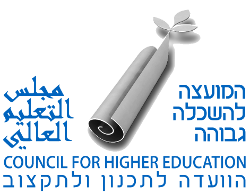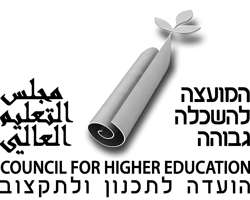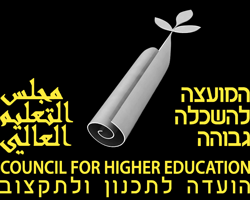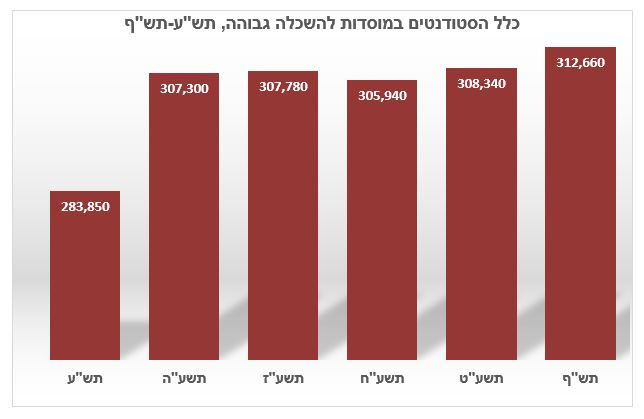Commencement of the 2020/21 Academic Year
Press Release – Collection of Data for Start of Year 2020/2021
-
Commencement of the 2020/21 Academic Year in the Midst of the Novel Coronavirus
Even with the Significant Increase in the Number of Persons Enrolling in Higher Education, the Higher Education System Is Fully Prepared to Commence the School Year and Admit the Applicants
- According to data recently collected from institutions of higher education, there is a significant increase of 20%-25% in registration for academic studies in all degrees.
- There has been a continued significant increase in the number of students, including women, in high-tech fields.
- Approximately NIS 1 billion in resources per year has been allocated to student assistance programs, including an assistance supplement dedicated to the coronavirus crisis in the sum of NIS 100 million.
- An additional NIS 70 million has been allocated for the advancement of digital instruction in order to develop technological tools and train techno-pedagogical staff.
- Education combined with experience – an investment of approximately NIS 24 million in employment-oriented academic courses.
- The launch of the Quantum Project in the sum of NIS 1.2 billion in collaboration with the Weapons and Infrastructure Development Directorate, the Innovation Authority, the Ministry of Science and Technology, and the Finance Ministry.
With the commencement of the 2020/21 academic year, approximately 320,000 students are expected to attend institutions of higher education.
- A total of 35,700 engineering students – During the 2019/20 academic year, this was the most popular course of studies in Israel (approximately 18% of all undergraduate students). An additional 18,240 undergraduate students studied mathematics, statistics, and computer science. In total, approximately 54,000 students studied technological subjects.
- The number of students commencing medical studies increased from 530 in 2009/10 to 800 in 2020/21.
- In the last decade, the number of first year nursing students doubled from 1000 to 2000.
Increase in the Percentage of Women in Academia
- Women constitute approximately 60% of students in academia. From a multiyear perspective, there has been a significant increase in the participation by women at all degree levels: Undergraduate degrees – 58%, graduate degrees – 63%, and doctoral degrees – 54%.
- The "Equator Index" designed to promote gender equality was launched in institutions budgeted by the Planning and Budgeting Committee (PBC) in order to increase women’s representation among senior faculty and in the administration of institutions of higher education.
Making Higher Education Accessible to Diverse Populations
- Making higher education more accessible to the socioeconomic periphery: During the 2019/20 academic year, approximately 55,000 students, constituting approximately 31% of undergraduate students, came from towns located in low socioeconomic clusters (clusters 1-4).In academic colleges budgeted by the PBC, these students play a prominent part in enrollment, constituting 35% of the undergraduate student body, echoing the percentage of the population - 36% - living in these clusters.
- Making Higher Education Accessible to Arab Society: There are approximately 54,000 Arab students, constituting approximately 17% of all students in Israel, as compared to their constituting 20% of the total population. (This is an increase of 110% over the last decade.)
- Program for Excellence Among Students of Ethiopian Descent: There are approximately 4,060 students of Ethiopian descent, constituting approximately 1.3% of all students in Israel, as compared to their constituting 1.7% of the total populace (an increase of approximately 40% over the last five years).
- Increased number of ultra-Orthodox Jewish students: There are approximately 13,400 ultra-Orthodox Jewish students, representing approximately 4% of all students in Israel, as compared to their constituting 12% of the total populace (an increase of 45% over the last five years).
Internationalism in Higher Education
- OECD Ranking: Israel is among the top ranked in the world in the percentage of persons with a post-secondary and academic education among persons aged 25-64.
- We continue to promote internationalism in higher education: There has been an increase in the number of postdoctoral and international students enrolled in advanced degree programs.
The Higher Education System Budget
- The higher education system has nearly doubled: From ILS 6.9 billion (2010) to NIS 12.3 billion (2021).
- Research fund budgets have tripled – Within a decade, the annual budget for Israeli research funds has nearly tripled, from NIS 450 million to NIS 1,274 million.
- There has been a significant increase in awards by competitive research funds (bi-annual average), from approximately 177 in the 2009/10 academic year to 314 in the 2019/20 academic year (80% +).
- Investment of hundreds of millions of ILS annually in research infrastructure
Prof. Yaffa Zilbershats, Chair of the Council for Higher Education's Planning and Budgeting Committee: "The current decade has been characterized by excellence and amazing development in the academic system. The budgets enabled the system to expand its accessibility programs and open the doors of academia to all population groups. Additionally, there has been a significant increase in investment in research, funds, and infrastructure, as well as flagship subjects, such as data science and artificial intelligence, personalized medicine, and quantum science and technology. Similarly, the number of academic publications has increased, and thanks to the national program for strengthening high-tech subjects, a large number of students have enrolled in these fields, and engineering studies have become the most sought after course of study in Israel. The digital learning revolution is at its height and has enabled the system to carry out studies even in the age of the novel coronavirus. Similarly, the system has promoted entrepreneurial and innovation studies and the expansion of collaboration between academia and industry."



